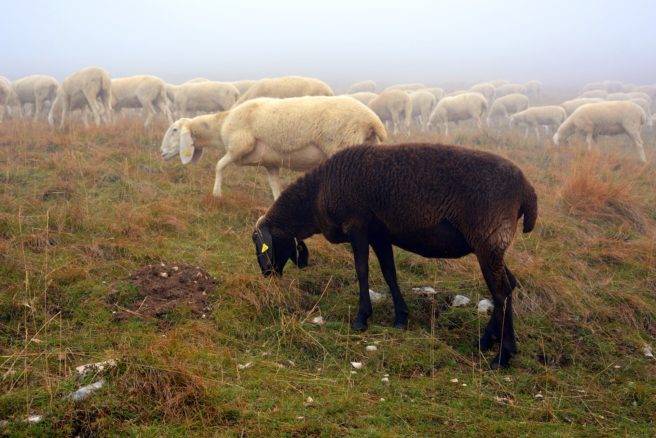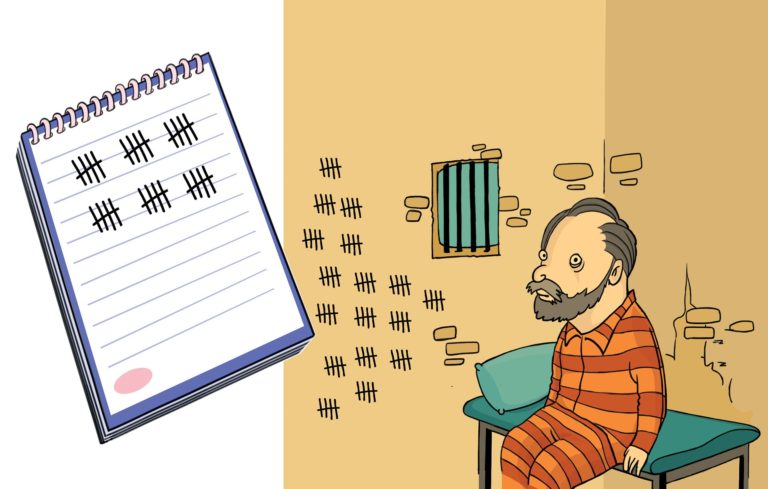22 Idioms for Talking About Family
If you’ve studied English for a while, communicating basic information about your family is probably easy at this point.
What might still be difficult is using idioms and natural-sounding expressions to describe family dynamics and other more complicated family matters.
Here are 22 essential idioms for talking about family, along with some conversation questions you can use to practice the idioms.
Also see this practice exercise, which requires you to use the idioms.
Interested in learning idioms? If so, check out the idioms and phrasal verb section of the site.
Idioms about similarities between a child and another family member
to take after someone
To take after someone means to be very similar to an older family member.
“I take after my father. We’re both architects, and we both love soccer.”
“We’re all glad that Mark took after his mother instead of his father. His father was a thief, but his mother was a saint.”

the apple doesn’t fall far from the tree
The apple doesn’t fall far from the tree means that a child usually has similar qualities to their parents.
“John ended up in prison just like his father. I guess the apple doesn’t fall far from the tree.”
“It’s not unusual that you have the same interests as your mother. The apple doesn’t fall far from the tree.”

a chip off the old block
If someone is a chip off the old block, it means the person is very similar (in character and personality) to one of their parents.
“Tiffany is an accomplished pianist just like her mother. She’s a chip off the old block.”
“Sam’s a chip off the old block. He and his father are both stubborn, headstrong people.”

to follow in someone’s footsteps
To follow in someone’s footsteps means to try to achieve the same things that someone else (usually a family member) has already done.
“I decided to go into law instead of medicine. I thought about following in my father’s footsteps and becoming a surgeon, but I don’t think I’d make a great doctor.”
“Michael Douglas followed in his father’s footsteps and became an actor. His father, Kirk Douglas, was also a Hollywood actor.”

like father, like son
Like father, like son is an expression that means that sons tend to be similar to their fathers. We normally use this idiom to talk about personality, interests, and character.
“Jimmy is tall just like his father, and they have the same smile. Like father, like son.”
“Both Miguel and his father spend their weekends fishing and watching sports. Like father, like son.”

to run in the family
If something runs in the family, it means that many members of the family have that quality, skill, interest, problem, disease, etc.
“Heart disease runs in my family. I try to have a healthy diet and get plenty of exercise.”
“Talk to your doctor about any illnesses that run in your family.”

in one’s blood
If something is in one’s blood, it means that it is a fundamental part of who that person is and something that is ingrained in that person’s family.
“Law is in my blood. I’m a lawyer, and so is my father, my grandfather, and two of my aunts.”
“Music is in my blood. Almost everyone in my family can sing, compose, or play an instrument.”

spitting image
If someone is a spitting image of another family member, it means that those two people look almost identical.”
“Kate’s the spitting image of her mother. They both have blue eyes and dimples.”
“My son is a spitting image of my husband.”

Idioms about a parent’s love for a child
the apple of one’s eye
Someone’s favorite or most cherished person is the apple of their eye. We often use this idiom to talk about a parent and their child.
“Our grandson is the apple of our eye. We absolutely adore him.”
“Sadly, Ramona doesn’t remember her father because he died when she was two. She knows that she was the apple of his eye, though.”

pride and joy
Someone’s pride and joy is someone who makes that person extremely proud and happy. We can also use this idiom to talk about a thing (a hobby, possession, etc.) that makes someone proud and happy.
“Mike retired early to spend time with his kids. They’re his pride and joy.”
“Melanie’s garden is her pride and joy. Nothing makes her happier than spending her weekends making it look beautiful.”

Idioms about good and bad family relationships
get along with (or get on with)
If two people get along with (or get on with) each other, it means that they like each other and have a friendly relationship. (Get along with is American English, and get on with is British English.)
“I feel fortunate that I get along with my family so well.”
“If you have a large family, there will likely be some people who don’t get along with each other.”

(just) one big happy family
If a group of people is (just) one big happy family, it means that a group of people (often a family) get along and work well together. We sometimes use this idiom sarcastically.
“To outsiders, they seemed like one big happy family, but they often fought behind closed doors.”
“Our firm has been successful because of our close-knit relationship. We’re one big happy family.”

to have a falling out
To have a falling out with someone means to have a disagreement which ruins a relationship with that person.
“Margaret and her sister had a falling out a few years back. They hardly even speak to each other now.”
“There were some disagreements about my mom’s inheritance, and two of my brothers had a falling out over it.”

bad blood
Bad blood means that there is anger or hate between people people due to something that happened in the past.
“There’s bad blood between Carlos and Alex, so let’s not invite them both to dinner.”
“Are you sure you want to invite all of your cousins to your party? Isn’t there bad blood between two of them?”
“Bad Blood” is also a popular song by Taylor Swift which you may have heard.
Idioms about family leadership
to wear the pants
The person who wears the pants in a family is the person who hold the authority.
“My mother definitely wears the pants in the family. My dad only thinks he does.”
“My mother was very young when I was born, so it was my grandmother who wore the pants in my house.”

to rule the roost
The person who rules the roost is the person who is in charge.
“When we were kids, my oldest sister ruled the roost. She made all the decisions and always told us what to do.”
“When my mom was growing up, she says my Aunt Stacey ruled the roost.”

breadwinner
The breadwinner of a family is the person who financially provides for the family.
“I didn’t see my father as much as I saw my mother. He was the breadwinner of the family and worked long hours.”
“Most families don’t have just one breadwinner. Both parents often work and provide financially for their children.”

Other idioms about family
(own) flesh and blood
Someone’s (own) flesh and blood is that person’s close relative.
“How could you steal from us? You’re our own flesh and blood.”
“I would never cut my son out of my will for any reason. He’s my flesh and blood.”

black sheep
The black sheep of a family is someone who brings shame to their family by being different or doing something wrong.
“Marvin is the black sheep of the family. He’s been in college for seven years and still hasn’t graduated.”
“Kurt is the black sheep of the family. His parents wanted him to become a lawyer like his sister, but he decided to pursue a music career instead.”

family man
A family man is a man who is devoted to his wife and children and enjoys spending time with them.
“Carl never goes out with his coworkers after work. He’s a true family man, and always rushes home to be with his wife and kids.”
“I won’t spend my bonus on myself. I’m a family man, so I’ll probably use the money to buy something my wife and kids want.”

blood is thicker than water
Blood is thicker than water means that relationships with family members are stronger and more important than relationships with people outside of the family.
“Of course Karen is going to side with her sister in this argument. Blood is thicker than water.”
“My brother and best friend are getting married on the same day. I’m going to go to my brother’s wedding, of course. Blood is thicker than water.”

born with a silver spoon in one’s mouth
If someone was born with a silver spoon in their mouth, it means that they were born into a wealthy and privileged family.
“I wasn’t born with a silver spoon in my mouth. I had to work two jobs to put myself through college.”
“Most presidential candidates were born with silver spoons in their mouths. Rarely do they come from middle class families.”

Practice
To practice the idioms about family, answer the following questions.
Also try this practice exercise.
1. Is there a black sheep in your family. Who is it? What makes this person the black sheep? Are any of your friends the black sheep of the family? Explain.
2. Do you agree that blood is thicker than water? Do you have any examples to support your opinion?
3. Do you get along with your brothers and sisters? What about your parents? Have you always gotten along, or did you used to fight when you were younger?
4. Do you think it’s common for there to be bad blood between different family members? Why do you think this is?
5. What issues normally cause people to have a falling out?
6. In your country, is the man usually the breadwinner? Is this changing?
7. Who wears the pants in your family?
8. Are you similar to your mother or father? Do people think you’re the spitting image of him/her? Do people think you’re a chip off the old block?
9. Do you think life is easier if you’re born with a silver spoon in your mouth?
10. What runs in your family? Explain.
11. Have you tried to accomplish the same things as your parents? Are you following in their footsteps? Why or why not?
For more idiomatic expressions, see these articles on idioms and phrasal verbs.







